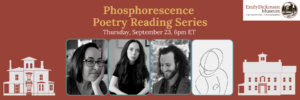BY LISA LEE HERRICK
Lisa Lee Herrick is a finalist for the Restless Books Prize for New Immigrant Writing.
The illuminating essays in Lisa Lee Herrick’s Endangered Animals describe contemporary Hmong American culture and community with journalistic vigor and a keen sensitivity. With great authority, Herrick interrogates what is lost in personal, ancestral, and cosmic terms when a family leaves the homeland that holds their history, their forebears, their mythologies. Displaying a deeply felt sense for the customs, rituals, and folkways that re-evoke left-behind terrain, she conjures it anew amidst the unfamiliar realities of immigrant life. How do we maintain a diasporic culture? How can we uphold and bolster the spirit in the face of war, migration, and forced adaptation and erasure? These essays of startling range and vision provide new ways of thinking about these essential quandaries of our age.
This excerpt is adapted from an essay originally published by Emergence, which was included in Best American Essays 2021.
Days before California governor Gavin Newsom mandated the statewide stay-at-home order on March 19, 2020, which effectively paused all nonessential economic activity and travel for nearly forty million residents, a Facebook post from a publishing acquaintance popped up in my news feed. His collage of photos and videos were taken, he claimed, during a past trip to China years ago, and they caught my eye because they featured an array of skewers arranged in neat, vertical piles—including grubs and scorpions—heaping piles of brown foods garnished with chopped scallions, and a balding, middle-aged Chinese man, lips pursed, clearly enjoying his meal. Above it, my acquaintance wrote: A few photos/videos from a “live animal market.” Any questions? I held my breath, watching the flurry of gray ellipses begin to dance in the comments.














